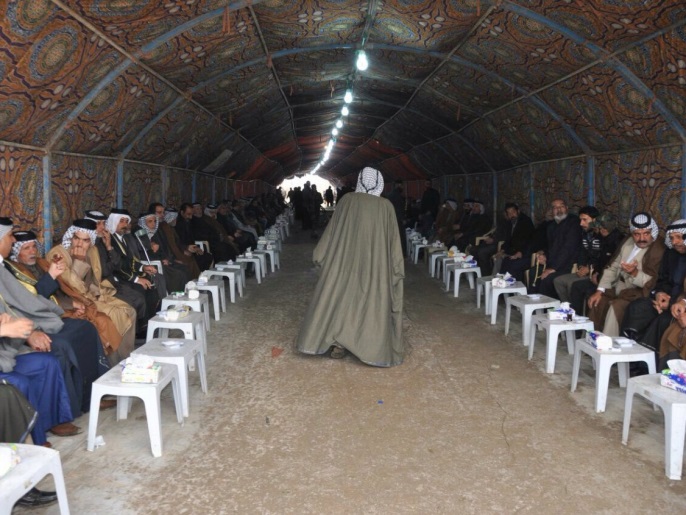The development of simple quarrels into fighting with swords or firearms in Iraq has become widespread, with casualties, often due to a simple cause such as a football match or duck ownership.
The last quarrel of this kind resulted in the death of a child and the wounding of 4 people during an exchange of fire with Kalashnikovs and even rocket-propelled grenades two weeks ago in the southern province of Maysan. This "battle" led to a quarrel between two children under 10 years old, one of whom belongs to the Al-Faratsa clan refused to return A thousand dinars (less than a dollar) he borrowed from his friend from the Albu Ali clan, and the lender's father intervened and beat the other child, and the matter escalated into an armed clash.
And the worst of it may be that the five victims were just passers-by and did not belong to the two clans, explains Sattar Jabbar, head of a humanitarian NGO to support orphans in Maysan.
A week later, another sword dispute erupted in the Al-Kahla district in the same governorate, between people from the Al-Nawafil clan, due to one of them insulting an influential religious figure. As a result, 3 people were killed and two members of the clan were injured, and 7 people were arrested after the police deployed to prevent the escalation of the quarrel.
Iraqi law considers such tribal practices "terrorism", punishable by severe penalties, up to the death penalty (Al-Jazeera)
Terror and punishment
About a month ago, a dispute during a football match between the Al-Fraihat and Al-Rusitam clans led to the death of one person and the injury of five in the border district of Bani Hashem with Iran, said Police Captain Fares Mahdi.
The problem did not end until the Al-Rastum clan provided 20 million dinars (about 13,300 dollars) in ransom or compensation to the family of the victim, during a joint tribal meeting, according to the police officer.
In the city of Kut, the capital of Wasit Governorate, south of Baghdad, a young man in his twenties was shot dead during an exchange of fire and an exchange of hand grenades between two clans over a dispute over the ownership of a duck.
A local official, who asked not to be identified, explained that a gunfight erupted after two women, one of them from al-Hasaniya clan and the other from al-Zubaid clan, quarreled over the ownership of a duck whose price does not exceed 5,000 dinars (about 3.5 dollars).
This issue is very sensitive, as Iraqi law considers such practices as "terrorism", punishable by severe penalties, up to the death penalty.
The religious authority in Najaf is also seeking to put an end to these quarrels.
The Shiite authority in Iraq, Ali al-Sistani, called, during a sermon delivered by his representative, Sheikh Abdul Mahdi al-Karbalai, to stop these "conflicts and interactions that have plunged the country into a cycle of instability and backwardness."
Clan fighting leads to long-term conflicts, sometimes lasting years (Al-Jazeera)
long disputes
The head of the Parliamentary Committee for Peaceful Coexistence, Representative Abboud Al-Issawi, believes that these conflicts are caused by the collapse of the state, especially after the US invasion of the country in 2003 and the spread of arms and trafficking in it.
And spread throughout Iraq - which has a population of 40 million people, 40% of whom are under 14 years old - about 7.6 million light weapons, according to a survey conducted in 2017, while the number of undeclared weapons may be much greater.
Clan weapons are not limited to light machine guns, they have rockets, machine guns, armored wheels and other heavy weapons that are sometimes used during clan fighting.
This leads to protracted conflicts, sometimes lasting years.
Sheikh Yarub al-Muhammadawi, a tribal leader in Basra, in the south of the country, talks about "a conflict that began 8 years ago and continues to this day, during which 7 people were killed and 14 others were injured, against the background of a 28 million dinars loan (about 19 thousand dollars)."
And the sheikh held "the responsibility of the state, which should confine weapons to its own hands", considering at the same time that "society also bears a responsibility, as it should give priority to the language of dialogue over the language of arms."

